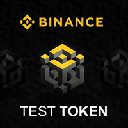-
 Bitcoin
Bitcoin $96,586.4385
-0.39% -
 Ethereum
Ethereum $2,785.6635
4.13% -
 XRP
XRP $2.5991
1.04% -
 Tether USDt
Tether USDt $0.9999
-0.03% -
 BNB
BNB $661.5182
2.46% -
 Solana
Solana $173.2834
1.13% -
 USDC
USDC $1.0000
0.03% -
 Dogecoin
Dogecoin $0.2468
0.27% -
 Cardano
Cardano $0.7793
0.80% -
 TRON
TRON $0.2356
-1.45% -
 Chainlink
Chainlink $17.9083
0.96% -
 Avalanche
Avalanche $26.0287
5.58% -
 Sui
Sui $3.4031
0.99% -
 Stellar
Stellar $0.3363
2.07% -
 Litecoin
Litecoin $128.1663
-1.48% -
 Shiba Inu
Shiba Inu $0.0...01561
1.89% -
 Toncoin
Toncoin $3.6914
1.02% -
 Hedera
Hedera $0.2191
3.11% -
 UNUS SED LEO
UNUS SED LEO $9.7035
0.29% -
 Hyperliquid
Hyperliquid $24.4350
-1.25% -
 Polkadot
Polkadot $5.1194
-0.93% -
 MANTRA
MANTRA $7.6293
1.66% -
 Bitcoin Cash
Bitcoin Cash $321.2375
0.18% -
 Bitget Token
Bitget Token $4.9458
4.38% -
 Ethena USDe
Ethena USDe $0.9996
0.16% -
 Uniswap
Uniswap $9.0277
0.85% -
 Dai
Dai $1.0000
0.03% -
 Monero
Monero $235.4942
3.03% -
 NEAR Protocol
NEAR Protocol $3.5534
4.60% -
 Pepe
Pepe $0.0...09663
3.03%
What can Syscoin (SYS) coins be used for?
Syscoin (SYS) coins facilitate transactions, staking, governance, platform development, and decentralized identity management on the Syscoin blockchain.
Dec 21, 2024 at 06:13 am

What Can Syscoin (SYS) Coins Be Used For?
Syscoin (SYS) is a blockchain platform that combines the security of Bitcoin with the flexibility of Ethereum, enabling the creation and execution of smart contracts and decentralized applications (dApps). SYS coins, the native cryptocurrency of the Syscoin platform, play a vital role in the network's operations and offer various use cases:
Key Points:
- Transaction Fees: SYS coins are used to pay transaction fees on the Syscoin network, enabling users to transfer tokens and execute smart contracts. The fees incentivize miners to process transactions and maintain the security of the blockchain.
- Staking: SYS holders can participate in the network's Proof-of-Stake (PoS) consensus mechanism by staking their coins. Stakers earn rewards by validating transactions and securing the blockchain, contributing to the network's stability.
- Governance: SYS coins grant holders voting rights in the Syscoin Decentralized Autonomous Organization (DAO), allowing them to participate in decision-making processes and shape the future of the platform.
- Platform Development: SYS can be used to fund development initiatives and support the growth and maintenance of the Syscoin ecosystem. Holders can contribute SYS to projects they believe in, fueling innovation and platform advancements.
- Identity and Reputation: Syscoin supports the creation of decentralized identities (DIDs) and reputation systems. SYS coins can be used to register and manage DIDs, enabling users to control their personal information and establish verifiable trust within the network.
Step 1: Understanding Syscoin's Blockchain Features
Syscoin leverages a hybrid blockchain infrastructure that combines Proof-of-Work (PoW) and Proof-of-Stake (PoS) consensus mechanisms. The PoW mechanism, similar to Bitcoin, ensures the security and immutability of the blockchain. The PoS mechanism, introduced through Syscoin's layer-2 extension known as NEVM, enhances transaction processing efficiency and scalability while rewarding stakers for their contributions.
Step 2: Transactions with SYS Coins
SYS coins serve as the medium of exchange on the Syscoin blockchain, enabling transactions between network participants. Users can transfer SYS coins to other addresses or pay transaction fees when executing smart contracts. These fees compensate miners for their computational efforts in validating and processing transactions, maintaining the integrity and security of the blockchain.
Step 3: Staking and Earning Rewards with SYS Coins
SYS holders have the opportunity to participate in staking, a process where they lock a portion of their coins in a dedicated wallet to support the network's security. Stakers help validate transactions and secure the blockchain, earning rewards in the form of additional SYS coins. The amount of rewards depends on the number of coins staked, the duration of staking, and the overall performance of the network.
Step 4: Governance and Decision-Making
SYS coins grant holders voting rights in the Syscoin platform's governance system. Through the Syscoin DAO, holders can participate in decision-making processes that shape the future of the platform. They can vote on proposals related to technical upgrades, ecosystem development, and other matters that impact the network's direction and growth.
Step 5: Identity Management and Reputation Systems
Syscoin's decentralized identity and reputation management capabilities empower users to create verifiable digital identities and establish their trustworthiness within the network. SYS coins can be used to register and manage DIDs, enabling users to control their personal information and reputation. This feature supports the development of trust-based ecosystems, where reputation plays a crucial role in interactions and transactions.
Step 6: Funding Development and Growth
SYS coins can be utilized to fund ongoing development initiatives and support the growth and advancement of the Syscoin ecosystem. Holders can contribute SYS to projects they believe in, ranging from technical improvements to community-driven initiatives. This funding机制 fuels innovation and ensures the platform's continued development and sustainability.
FAQs:
Q: What is the primary use case of SYS coins on the Syscoin platform?
A: SYS coins are primarily used for transaction fees, staking, governance, platform development, identity management, and reputation systems.
Q: How does staking SYS coins contribute to the network?
A: Staking involves locking SYS coins in a dedicated wallet to support the network's security by validating transactions. Stakers earn rewards in the form of additional SYS coins based on their contributions.
Q: What are the benefits of holding SYS coins?
A: SYS holders benefit from transaction fee reduction when using the Syscoin blockchain, can participate in staking to earn rewards, hold voting rights in governance decisions, and contribute to the platform's development and growth.
Disclaimer:info@kdj.com
The information provided is not trading advice. kdj.com does not assume any responsibility for any investments made based on the information provided in this article. Cryptocurrencies are highly volatile and it is highly recommended that you invest with caution after thorough research!
If you believe that the content used on this website infringes your copyright, please contact us immediately (info@kdj.com) and we will delete it promptly.
- DTX Exchange at $0.18: The Breakout Altcoin Whales Are Betting On
- 2025-02-23 01:05:25
- DOGE and PEPE Are Still Facing Challenges, Struggling to Regain Their Momentum after the Recent Bearish Market Trend
- 2025-02-23 00:45:25
- Pepe Coin (PEPE) Price Prediction 2023-2025: Can the Meme Coin Reclaim Its Former Highs?
- 2025-02-23 00:45:25
- Mutuum Finance: Poised to Revolutionize Crypto and DeFi Markets
- 2025-02-23 00:45:25
- #Pepeto Gains Traction in the Cryptocurrency Market with Its Presale Phase, Offering Tokens at an Attractive Price
- 2025-02-23 00:45:25
- Mooshot Crosses the $1 Million Mark, Signaling Strong Market Interest in AI-Powered Gaming
- 2025-02-23 00:35:25
Related knowledge

What are the long-term investment risks of Bitcoin?
Feb 22,2025 at 05:30pm
Key PointsVolatility and price fluctuationsRegulatory uncertaintySecurity risksCompetition from altcoinsMarket manipulation and scamsTransaction feesEnvironmental concernsLong-Term Investment Risks of BitcoinVolatility and Price FluctuationsBitcoin's high volatility is a double-edged sword. While it has the potential to generate substantial returns, it ...

What are the main contents of Bitcoin's "white paper"?
Feb 21,2025 at 04:36am
Key Points:Understanding Bitcoin's Genesis: The White Paper's IntroductionA Decentralized Digital Currency: Bitcoin's Core ConceptBlockchain Technology: The Foundation of Bitcoin's Immutable LedgerProof-of-Work: Securing Bitcoin's NetworkThe Design of Bitcoin's Currency: Issuance, Scarcity, and DivisibilityBitcoin's Potential Applications and Future Pro...

How does Bitcoin's distributed ledger ensure consistency?
Feb 22,2025 at 10:06pm
Key Points:Bitcoin employs a distributed ledger, also known as a blockchain, to maintain a tamper-proof and consistent record of transactions.The blockchain is a decentralized network of computers that collectively validate and store transaction data.Bitcoin's distributed ledger ensures consistency through consensus mechanisms and cryptographic algorith...

What does the Cryptographic Fundamentals of Bitcoin consist of?
Feb 21,2025 at 12:06pm
Key PointsUnderstanding the cryptographic algorithms used in BitcoinFamiliarization with the Bitcoin blockchain and its underlying mechanicsExamination of the security measures that protect Bitcoin from attackAnalysis of the decentralized nature of Bitcoin and its implicationsDiscussion of the scalability and transaction fee issues associated with Bitco...

What is Bitcoin's relationship with blockchain technology?
Feb 22,2025 at 07:00pm
Bitcoin's Intertwined Relationship with Blockchain TechnologyKey Points:Definition of blockchain technology and its decentralized natureBitcoin's utilization of blockchain for secure and immutable transactionsThe role of blockchain in verifying and confirming transactionsEvolution of blockchain technology beyond Bitcoin's cryptocurrency applicationsUnde...

How do Bitcoin mining pools work?
Feb 21,2025 at 09:07pm
Key Points of Bitcoin Mining Pools:Understanding Bitcoin Mining PoolsSteps to Join a Bitcoin Mining PoolChoosing the Right Mining PoolBenefits and Considerations of Mining PoolsHow do Bitcoin mining pools work?Understanding Bitcoin Mining PoolsBitcoin mining pools are distributed networks of mining participants who combine their computing power to solve...

What are the long-term investment risks of Bitcoin?
Feb 22,2025 at 05:30pm
Key PointsVolatility and price fluctuationsRegulatory uncertaintySecurity risksCompetition from altcoinsMarket manipulation and scamsTransaction feesEnvironmental concernsLong-Term Investment Risks of BitcoinVolatility and Price FluctuationsBitcoin's high volatility is a double-edged sword. While it has the potential to generate substantial returns, it ...

What are the main contents of Bitcoin's "white paper"?
Feb 21,2025 at 04:36am
Key Points:Understanding Bitcoin's Genesis: The White Paper's IntroductionA Decentralized Digital Currency: Bitcoin's Core ConceptBlockchain Technology: The Foundation of Bitcoin's Immutable LedgerProof-of-Work: Securing Bitcoin's NetworkThe Design of Bitcoin's Currency: Issuance, Scarcity, and DivisibilityBitcoin's Potential Applications and Future Pro...

How does Bitcoin's distributed ledger ensure consistency?
Feb 22,2025 at 10:06pm
Key Points:Bitcoin employs a distributed ledger, also known as a blockchain, to maintain a tamper-proof and consistent record of transactions.The blockchain is a decentralized network of computers that collectively validate and store transaction data.Bitcoin's distributed ledger ensures consistency through consensus mechanisms and cryptographic algorith...

What does the Cryptographic Fundamentals of Bitcoin consist of?
Feb 21,2025 at 12:06pm
Key PointsUnderstanding the cryptographic algorithms used in BitcoinFamiliarization with the Bitcoin blockchain and its underlying mechanicsExamination of the security measures that protect Bitcoin from attackAnalysis of the decentralized nature of Bitcoin and its implicationsDiscussion of the scalability and transaction fee issues associated with Bitco...

What is Bitcoin's relationship with blockchain technology?
Feb 22,2025 at 07:00pm
Bitcoin's Intertwined Relationship with Blockchain TechnologyKey Points:Definition of blockchain technology and its decentralized natureBitcoin's utilization of blockchain for secure and immutable transactionsThe role of blockchain in verifying and confirming transactionsEvolution of blockchain technology beyond Bitcoin's cryptocurrency applicationsUnde...

How do Bitcoin mining pools work?
Feb 21,2025 at 09:07pm
Key Points of Bitcoin Mining Pools:Understanding Bitcoin Mining PoolsSteps to Join a Bitcoin Mining PoolChoosing the Right Mining PoolBenefits and Considerations of Mining PoolsHow do Bitcoin mining pools work?Understanding Bitcoin Mining PoolsBitcoin mining pools are distributed networks of mining participants who combine their computing power to solve...
See all articles

















![BONK The Meme Coin MORE THAN ORDINARY [DOG] on Solana BONK The Meme Coin MORE THAN ORDINARY [DOG] on Solana](/uploads/2025/02/22/cryptocurrencies-news/videos/bonk-meme-coin-ordinary-dog-solana/image-1.jpg)


































































